Sun Edison has been a particular draw with high-profile customers like Whole Foods and Staples and equally high-profile investors.
NEW YORK: Last year, hybrid cars zoomed toward mainstream popularity. This year, it could be solar power. “Cleantech has captured the imagination of people. Solar power can be used anywhere from the Arctic to remote villages in India, supplying clean green energy,” said Jigar Shah, the 31-year-old founder and CEO of Sun Edison LLC, a Baltimore company that installs cutting-edge solar projects.
Few can ignore the buzz surrounding solar energy companies as record oil, gas, coal prices and worries about greenhouse gas emissions spark interest in alternatives to dwindling fossil fuels. In the US, one of the world’s largest solar energy markets, this level of investor excitement has not been seen since the Internet boom in the late ‘90s, and the sun is definitely shining on Shah’s young company.
Sun Edison has been a particular draw with high-profile customers like organic supermarket chain Whole Foods and Staples and equally high-profile investors. In June last year, Shah wrapped up a $60 million fund, financed by Goldman Sachs and Hudson United Bank to oversee BP Solar’s installation of sleek solar electric systems in a string of Staples and Whole Foods Market stores.
Shah’s company has also been in the news for creating a stellar business model. For years, solar power was too expensive. Then Sun Edison decided to think outside the box. It created a model where it helps qualifying companies and municipalities go solar with no upfront cost. “Sun Edison pays for, installs, owns and operates solar installations. Customers pay a fixed rate that is at or below current electricity prices for the solar electricity generated from these panels for ten years,” said Shah.
Average US electricity prices, by state, now range from 5 cents to 35 cents per kilowatt hour (kwh). “In Hawaii, for example, where there are a lot of state subsidies and incentives for solar power we can give to our customer a 20 per cent saving,” said Shah, a mechanical engineer who also has a MBA from the Robert H Smith School of Business.
Shah said he got his entrepreneur genes from his Gujarati physician father — Hasmukh Shah. “My dad was not a businessman but he sniffed opportunity in setting up a practice in a small place called Tampico in Illinois. It had no other doctor so he just cornered the market,” laughed Shah. Tampico has a population of just 900 people but it does have claim to fame — former US President Ronald Regan was born in a second story apartment situated over the village’s local bank. “But whichever way you look at it my father also provided a key service to Tampico which had no doctor. I see my job in the same light,” said Shah who never misses an opportunity to spread the gospel of solar power.
He says it will be cost-effective in the long-run for an energy-starved country like India to harness the power of the sun. “In the long-run, solar power will expand to provide the US 20 to 25 per cent of its energy needs,” forecast Shah.
“Now instead of copying western countries Indian villages which don’t have electricity and lack power infrastructure can simply leapfrog technology by adopting solar power. India has the expertise it just needs the vision.”
The future for Sun Edison looks sunny indeed. The market for solar power is set to grow at an annual clip of up to 35 per cent until 2010, as other countries follow in the United States’ footsteps with policies designed to spur the development of renewable energy resources.
Even hard-nosed Wall Street financiers are now catching a ride on the $14 billion global solar market.
![submenu-img]() MS Dhoni celebrates 43rd birthday with Salman Khan, gets video-call surprise from CSK captain
MS Dhoni celebrates 43rd birthday with Salman Khan, gets video-call surprise from CSK captain![submenu-img]() Watch: Jasprit Bumrah receives warm welcome in Ahmedabad following T20 World Cup win
Watch: Jasprit Bumrah receives warm welcome in Ahmedabad following T20 World Cup win![submenu-img]() Elvish Yadav trolled for demanding Armaan Malik's eviction for slapping Vishal Pandey in BBOTT 3 'You support him..'
Elvish Yadav trolled for demanding Armaan Malik's eviction for slapping Vishal Pandey in BBOTT 3 'You support him..'![submenu-img]() Mahabharat's Lord Krishna aka Nitish Bhardwaj lauds Kalki 2898 AD for 'clever use' of mythology: 'Hindi producers...'
Mahabharat's Lord Krishna aka Nitish Bhardwaj lauds Kalki 2898 AD for 'clever use' of mythology: 'Hindi producers...'![submenu-img]() NTA to conduct retest for CUET-UG candidates from July 15 if...
NTA to conduct retest for CUET-UG candidates from July 15 if...![submenu-img]() NTA to conduct retest for CUET-UG candidates from July 15 if...
NTA to conduct retest for CUET-UG candidates from July 15 if...![submenu-img]() Meet woman who left high-paying job, took 6 years to crack UPSC exam, got AIR 11, but still didn’t become IAS due to…
Meet woman who left high-paying job, took 6 years to crack UPSC exam, got AIR 11, but still didn’t become IAS due to…![submenu-img]() CUET UG answer key 2024 released, direct link here
CUET UG answer key 2024 released, direct link here![submenu-img]() Meet IAS officer, who left high-paying job, had to quit NDA due to depression, cracked UPSC exam, secured AIR...
Meet IAS officer, who left high-paying job, had to quit NDA due to depression, cracked UPSC exam, secured AIR...![submenu-img]() Meet IAS officer, who did BTech, MBA, MA, comes from a family of civil servants, cracked UPSC exam, secured AIR...
Meet IAS officer, who did BTech, MBA, MA, comes from a family of civil servants, cracked UPSC exam, secured AIR...![submenu-img]() Assam: Body Of 8-Year-Old Guwahati Boy Fell Into Drain Recovered After 3 Days, Parents Identify Body
Assam: Body Of 8-Year-Old Guwahati Boy Fell Into Drain Recovered After 3 Days, Parents Identify Body![submenu-img]() Hathras Stampede Case: STF Arrests Bhole Baba's Servant Ramladait
Hathras Stampede Case: STF Arrests Bhole Baba's Servant Ramladait![submenu-img]() BSP Tamil Nadu Chief K Armstrong Hacked To Death: 8 Suspects Arrested In Chennai
BSP Tamil Nadu Chief K Armstrong Hacked To Death: 8 Suspects Arrested In Chennai![submenu-img]() Days After Hathras Stampede Tragedy, An On-Camera Statement From Bhole Baba, Says 'Deeply Saddened…'
Days After Hathras Stampede Tragedy, An On-Camera Statement From Bhole Baba, Says 'Deeply Saddened…'![submenu-img]() UK PM Rishi Sunak Resigns, Concedes Defeat To Keir Starmer In UK Polls As Labour Wins Over 300 Seats
UK PM Rishi Sunak Resigns, Concedes Defeat To Keir Starmer In UK Polls As Labour Wins Over 300 Seats![submenu-img]() DNA Verified: Did Kangana Ranaut party with gangster Abu Salem? Actress reveals who's with her in viral photo
DNA Verified: Did Kangana Ranaut party with gangster Abu Salem? Actress reveals who's with her in viral photo![submenu-img]() DNA Verified: New Delhi Railway Station to be closed for 4 years? Know the truth here
DNA Verified: New Delhi Railway Station to be closed for 4 years? Know the truth here![submenu-img]() DNA Verified: Did RSS chief Mohan Bhagwat praise Congress during Lok Sabha Elections 2024? Know the truth here
DNA Verified: Did RSS chief Mohan Bhagwat praise Congress during Lok Sabha Elections 2024? Know the truth here![submenu-img]() DNA Verified: Is CAA an anti-Muslim law? Centre terms news report as 'misleading'
DNA Verified: Is CAA an anti-Muslim law? Centre terms news report as 'misleading'![submenu-img]() DNA Verified: Lok Sabha Elections 2024 to be held on April 19? Know truth behind viral message
DNA Verified: Lok Sabha Elections 2024 to be held on April 19? Know truth behind viral message![submenu-img]() In pics: Vicky Kaushal, Ammy Virk teach Anil Kapoor steps of Tauba Tauba as they promote Bad Newz on Bigg Boss OTT 3
In pics: Vicky Kaushal, Ammy Virk teach Anil Kapoor steps of Tauba Tauba as they promote Bad Newz on Bigg Boss OTT 3![submenu-img]() From Armaan Malik to Sidharth Shukla: 6 Bigg Boss contestants who lost their cool, went violent
From Armaan Malik to Sidharth Shukla: 6 Bigg Boss contestants who lost their cool, went violent![submenu-img]() 'Maa started crying when...': Sonakshi Sinha misses her family, pens emotional note
'Maa started crying when...': Sonakshi Sinha misses her family, pens emotional note![submenu-img]() Streaming This Week: Mirzapur season 3, Srikanth, Garudan, latest OTT releases to binge-watch
Streaming This Week: Mirzapur season 3, Srikanth, Garudan, latest OTT releases to binge-watch![submenu-img]() Remember Parzaan Dastur? Cute Sikh kid from Shah Rukh Khan's Kuch Kuch Hota Hai, 'Jalebi boy', who now works as...
Remember Parzaan Dastur? Cute Sikh kid from Shah Rukh Khan's Kuch Kuch Hota Hai, 'Jalebi boy', who now works as...![submenu-img]() Centre initiates disciplinary action against top Bengal cops for 'maligning' Raj Bhavan
Centre initiates disciplinary action against top Bengal cops for 'maligning' Raj Bhavan![submenu-img]() FIR against TMC MP Mahua Moitra for 'derogatory' social media post on...
FIR against TMC MP Mahua Moitra for 'derogatory' social media post on...![submenu-img]() Mumbai BMW crash: Accused's father taken into custody, CM Shinde assures justice
Mumbai BMW crash: Accused's father taken into custody, CM Shinde assures justice![submenu-img]() Meet man, who once worked as mechanic, later cracked UPSC exam to become IAS officer, secured AIR...
Meet man, who once worked as mechanic, later cracked UPSC exam to become IAS officer, secured AIR...![submenu-img]() Weather Forecast: IMD issues 'red' alert for heavy rainfall in Uttarakhand, check forecast for other states
Weather Forecast: IMD issues 'red' alert for heavy rainfall in Uttarakhand, check forecast for other states![submenu-img]() Lok Sabha Speaker's Election: What does the Constitution say?
Lok Sabha Speaker's Election: What does the Constitution say?![submenu-img]() Explained: Why is Kerala demanding to change its name to Keralam?
Explained: Why is Kerala demanding to change its name to Keralam?![submenu-img]() DNA Explainer: What is Kafala system that is prevalent in gulf countries? Why is it considered extremely brutal?
DNA Explainer: What is Kafala system that is prevalent in gulf countries? Why is it considered extremely brutal? ![submenu-img]() Lok Sabha Elections 2024: What are exit polls? When and how are they conducted?
Lok Sabha Elections 2024: What are exit polls? When and how are they conducted?![submenu-img]() DNA Explainer: Why was Iranian president Ebrahim Raisi seen as possible successor to Ayatollah Khamenei?
DNA Explainer: Why was Iranian president Ebrahim Raisi seen as possible successor to Ayatollah Khamenei?![submenu-img]() Elvish Yadav trolled for demanding Armaan Malik's eviction for slapping Vishal Pandey in BBOTT 3 'You support him..'
Elvish Yadav trolled for demanding Armaan Malik's eviction for slapping Vishal Pandey in BBOTT 3 'You support him..'![submenu-img]() Mahabharat's Lord Krishna aka Nitish Bhardwaj lauds Kalki 2898 AD for 'clever use' of mythology: 'Hindi producers...'
Mahabharat's Lord Krishna aka Nitish Bhardwaj lauds Kalki 2898 AD for 'clever use' of mythology: 'Hindi producers...'![submenu-img]() TMKOC's Gurucharan Singh makes first appearance in Mumbai after went missing, talks about unpaid dues: 'Mujhe puchna..'
TMKOC's Gurucharan Singh makes first appearance in Mumbai after went missing, talks about unpaid dues: 'Mujhe puchna..'![submenu-img]() Manushi Chhillar-Veer Pahariya fuel dating rumours as they dance together at Anant Ambani-Radhika Merchant's sangeet
Manushi Chhillar-Veer Pahariya fuel dating rumours as they dance together at Anant Ambani-Radhika Merchant's sangeet![submenu-img]() The Liver Doc slams Samantha's 'peddling fraud' doctors who are using her, 'misleading' people: 'My aim was..'
The Liver Doc slams Samantha's 'peddling fraud' doctors who are using her, 'misleading' people: 'My aim was..'![submenu-img]() Anant Ambani-Radhika Merchant Wedding: Nita Ambani steals the spotlight in this unique Mickey Mouse necklace
Anant Ambani-Radhika Merchant Wedding: Nita Ambani steals the spotlight in this unique Mickey Mouse necklace![submenu-img]() Viral video: Man finds giant centipede in bike helmet, internet is shivering
Viral video: Man finds giant centipede in bike helmet, internet is shivering![submenu-img]() Meet woman who takes Rs 5800000 per month to raise her own child, her husband is...
Meet woman who takes Rs 5800000 per month to raise her own child, her husband is...![submenu-img]() 'Reason for flights getting delayed': IndiGo passenger makes dance reel during flight, video goes viral
'Reason for flights getting delayed': IndiGo passenger makes dance reel during flight, video goes viral![submenu-img]() Woman swims with tiger in viral video, internet stunned by unlikely friendship
Woman swims with tiger in viral video, internet stunned by unlikely friendship











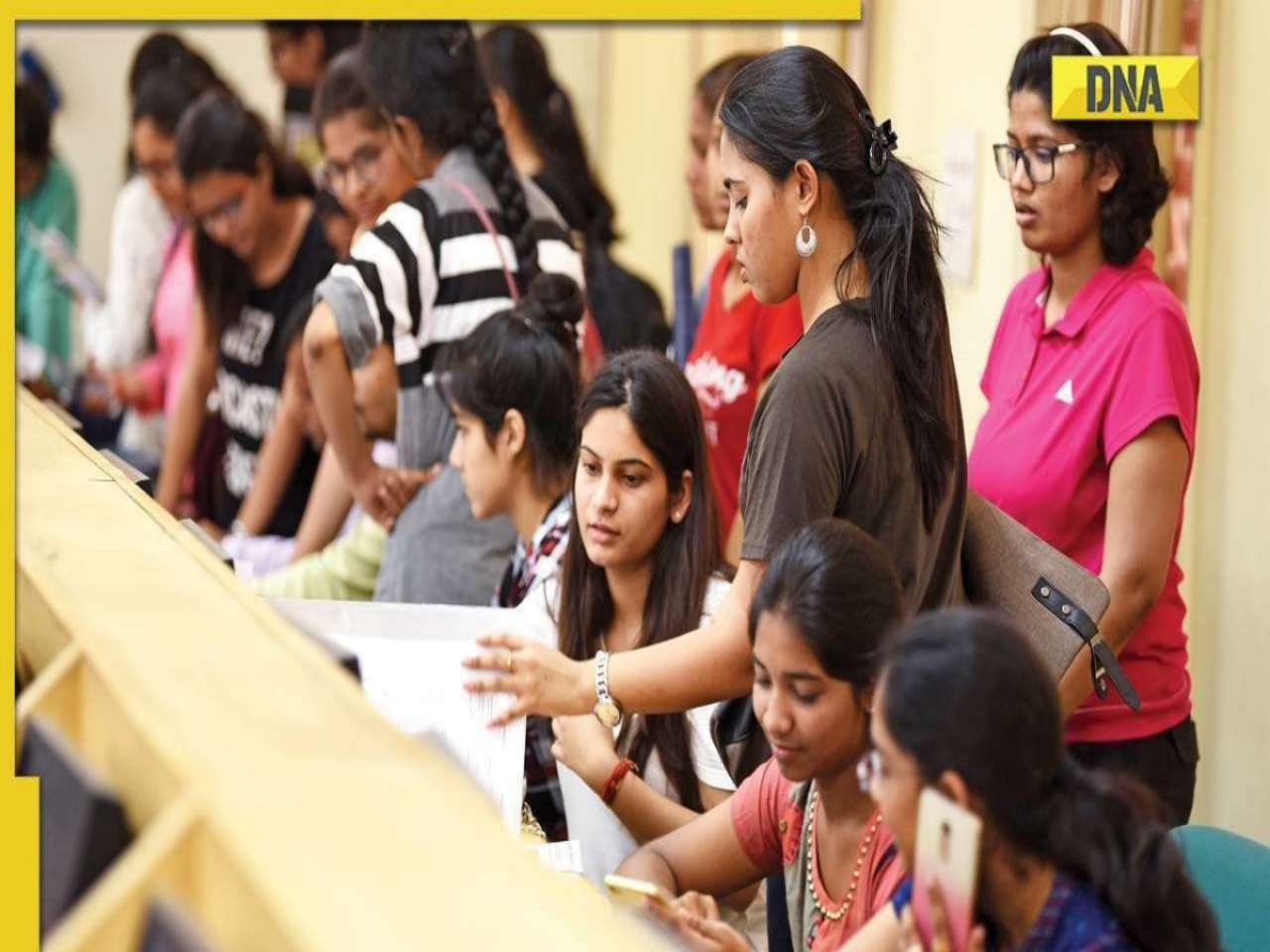
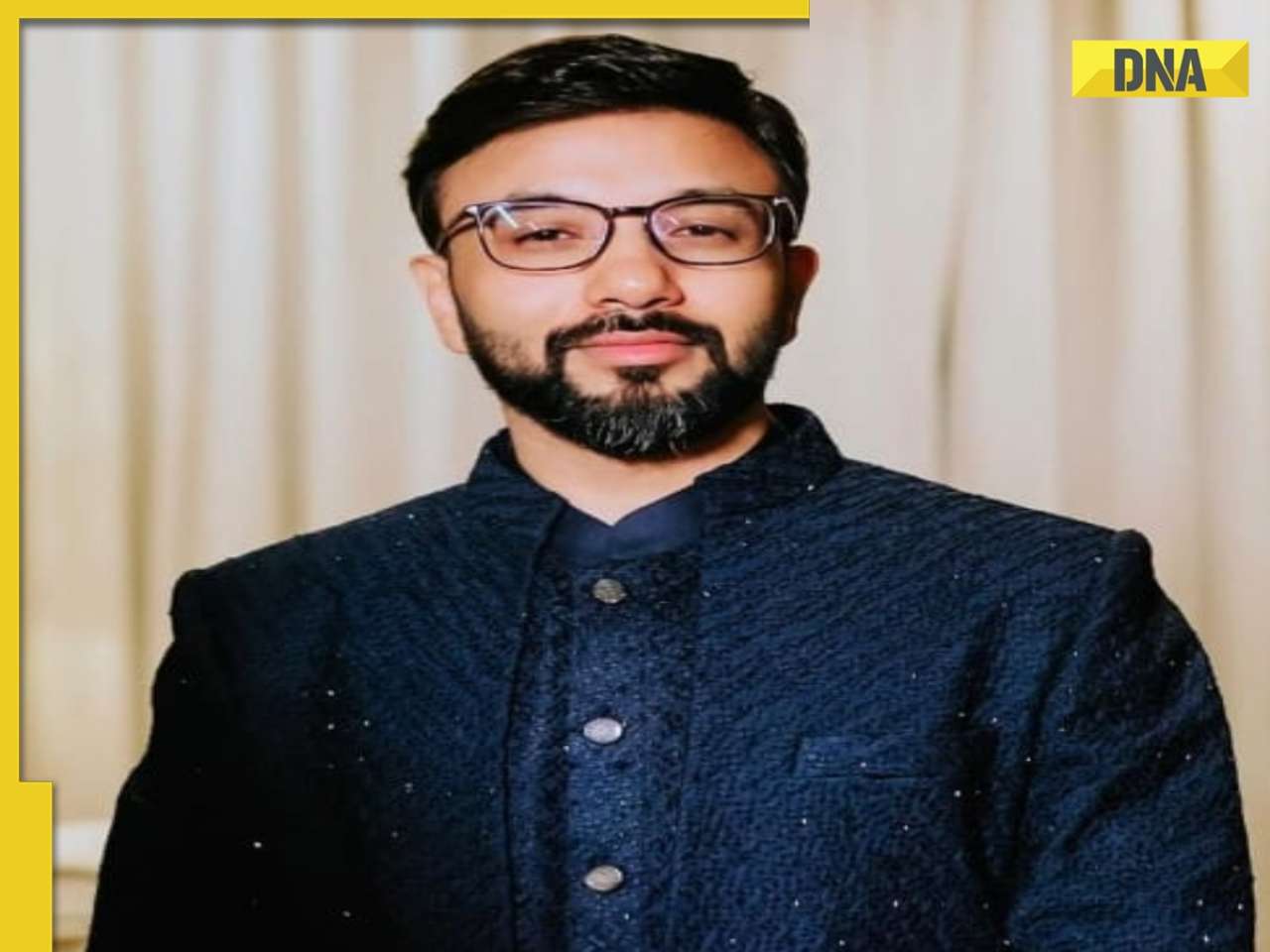
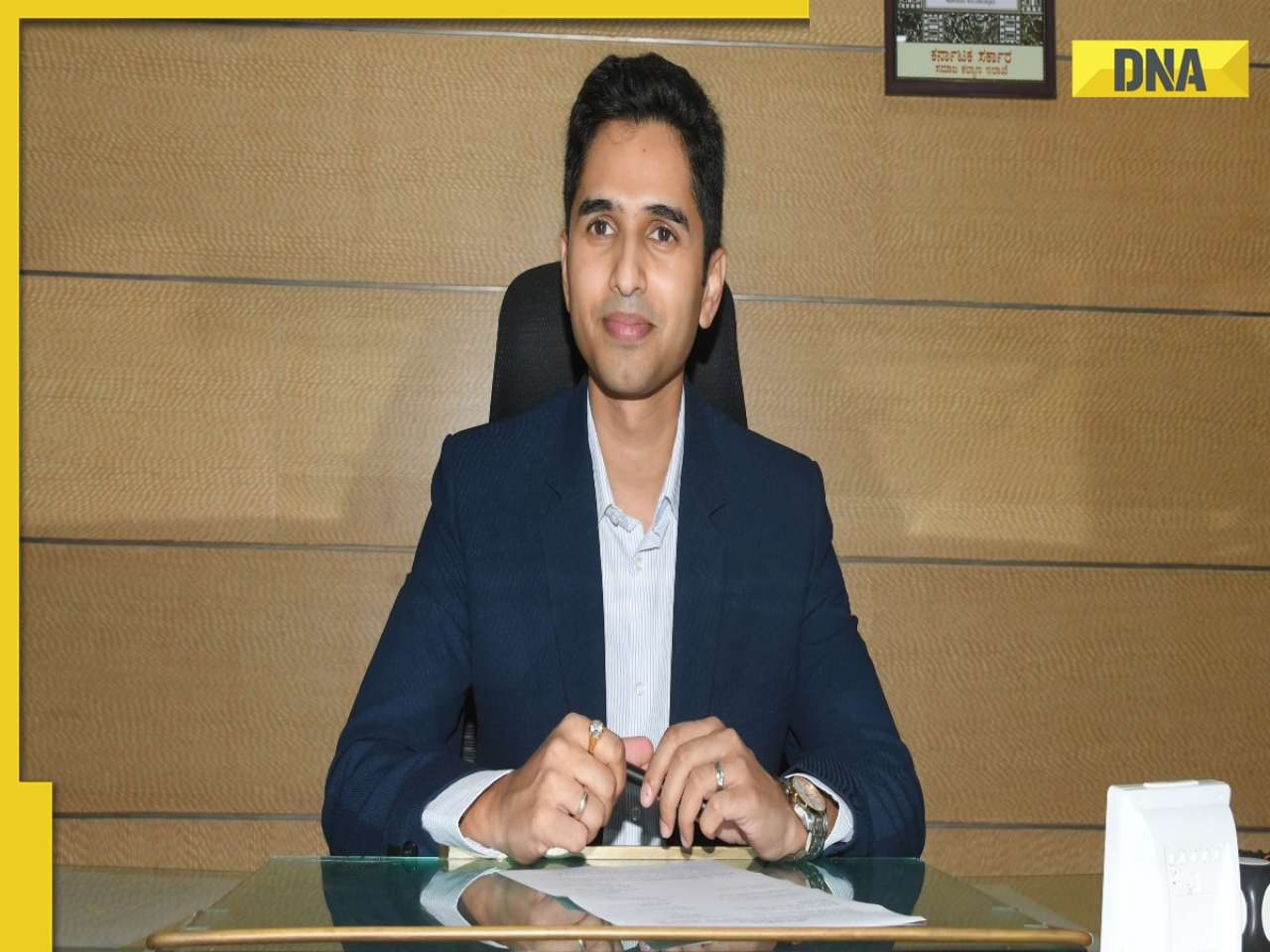





















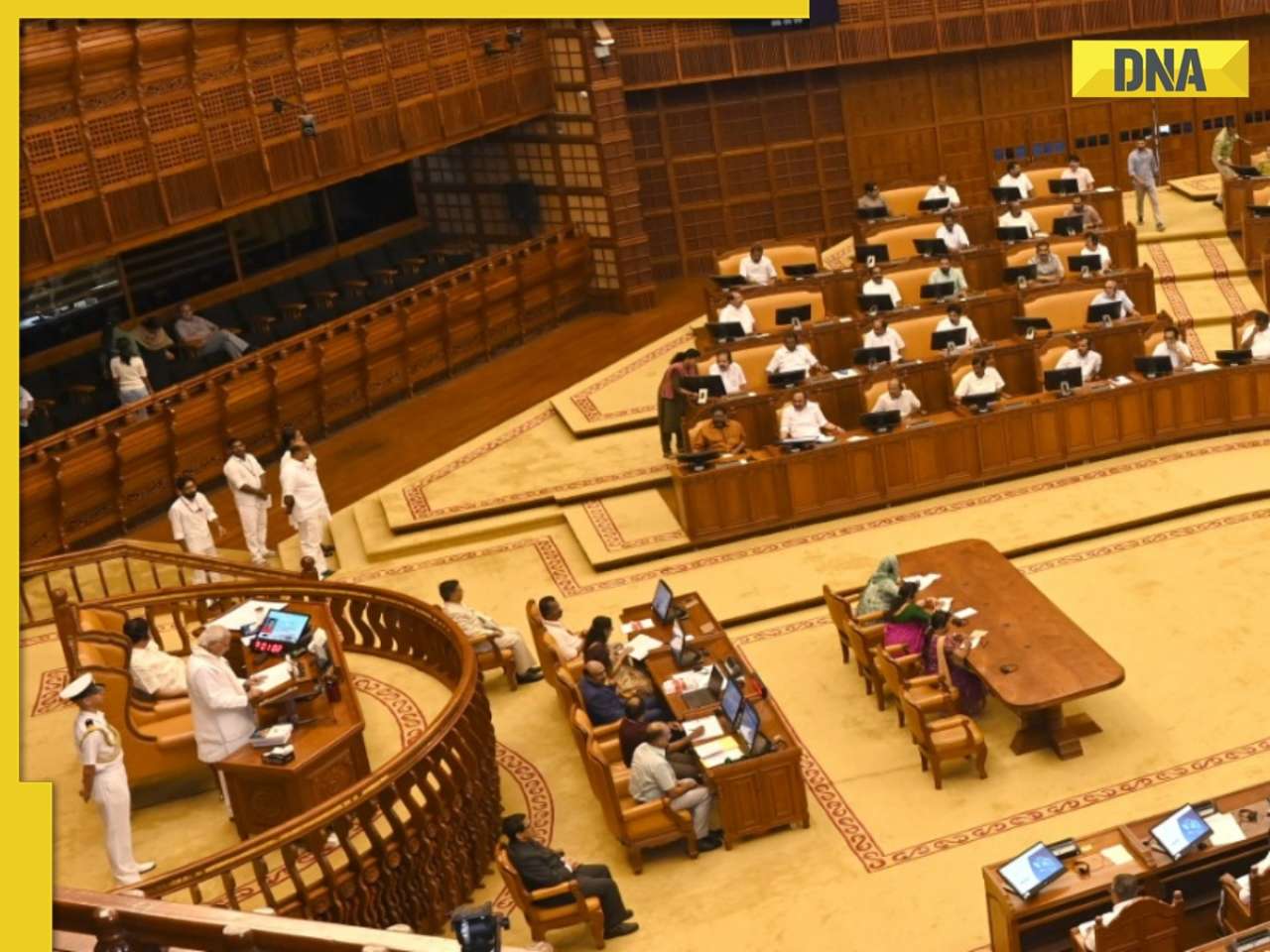












)

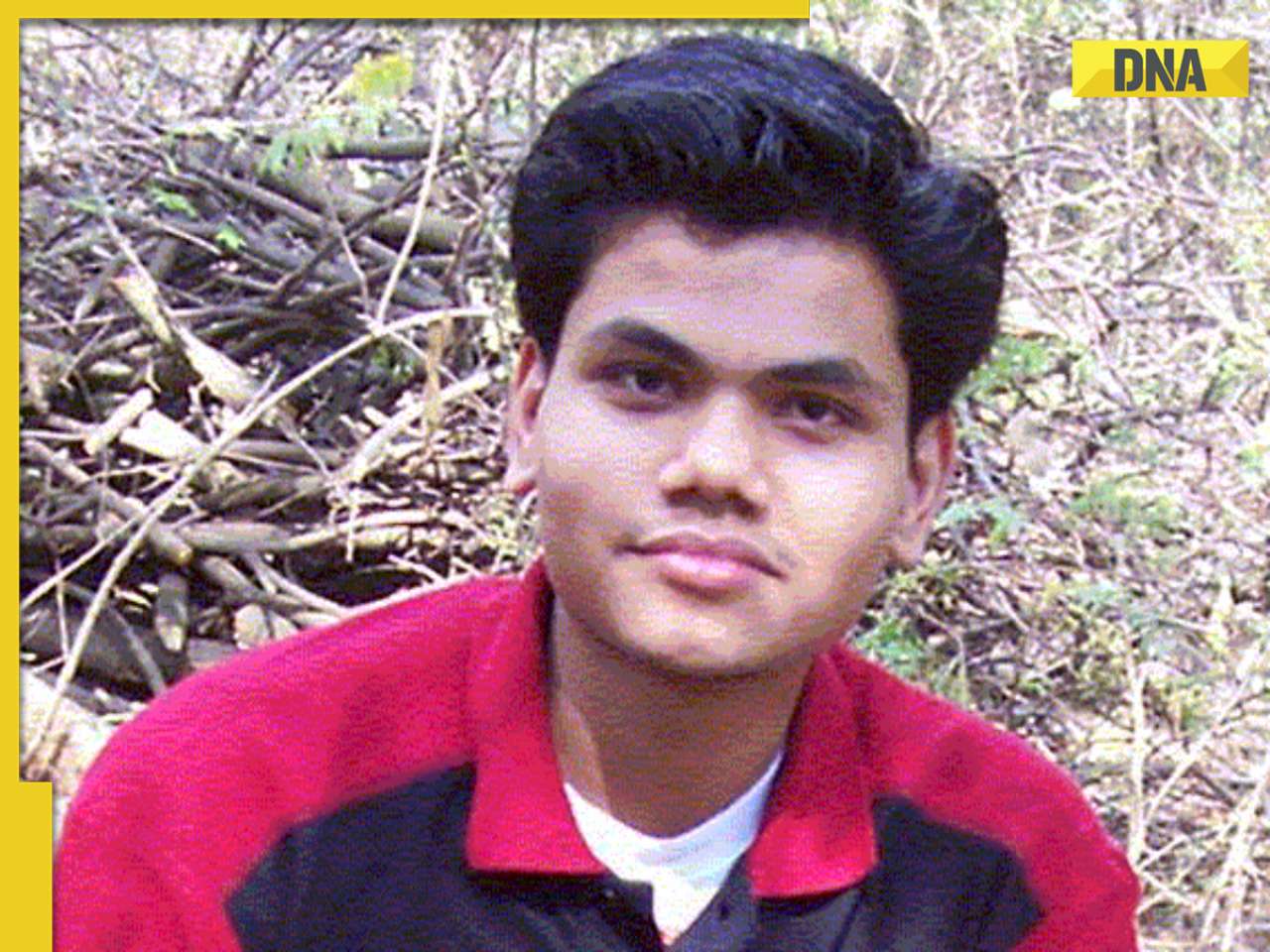
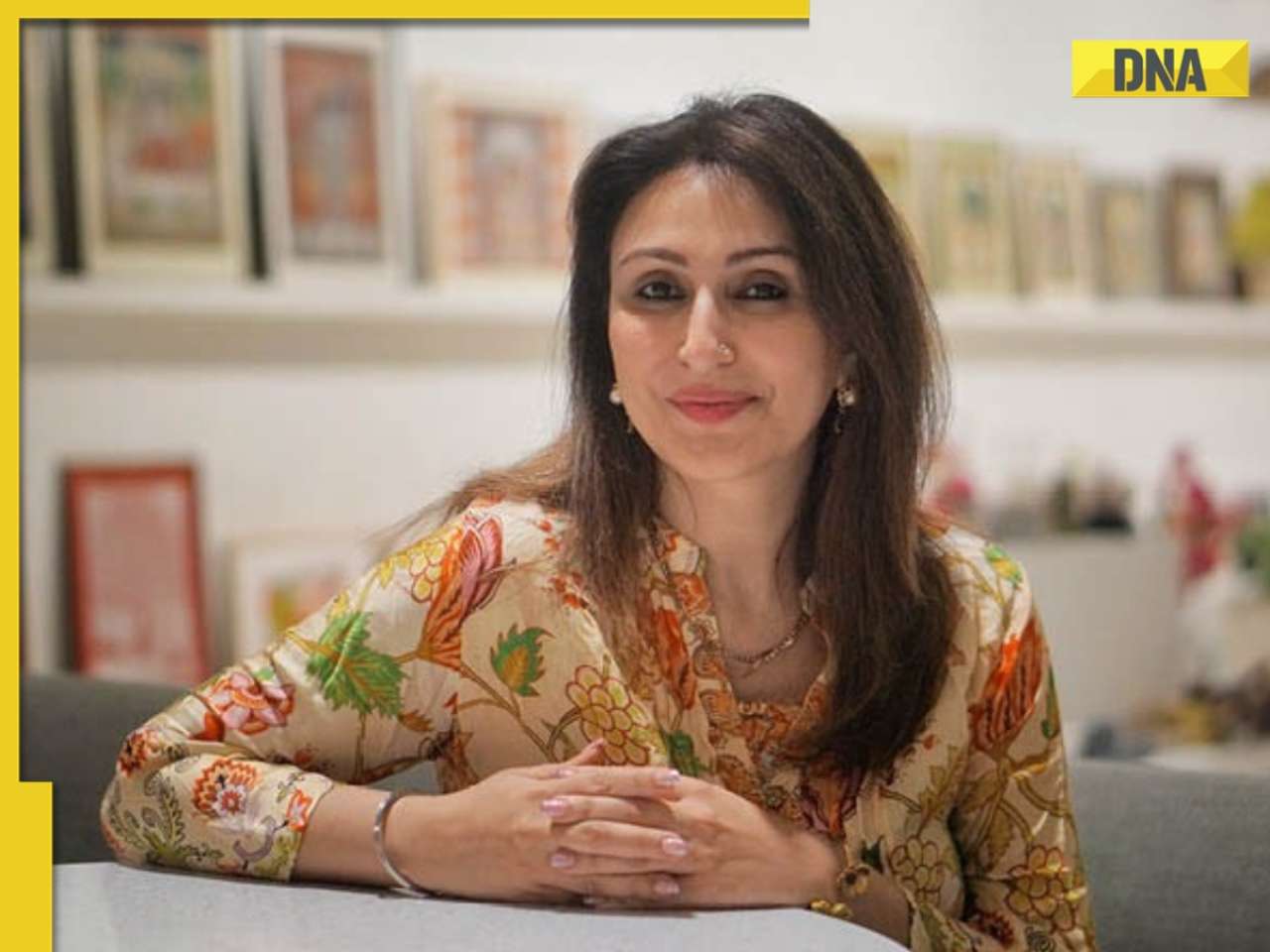
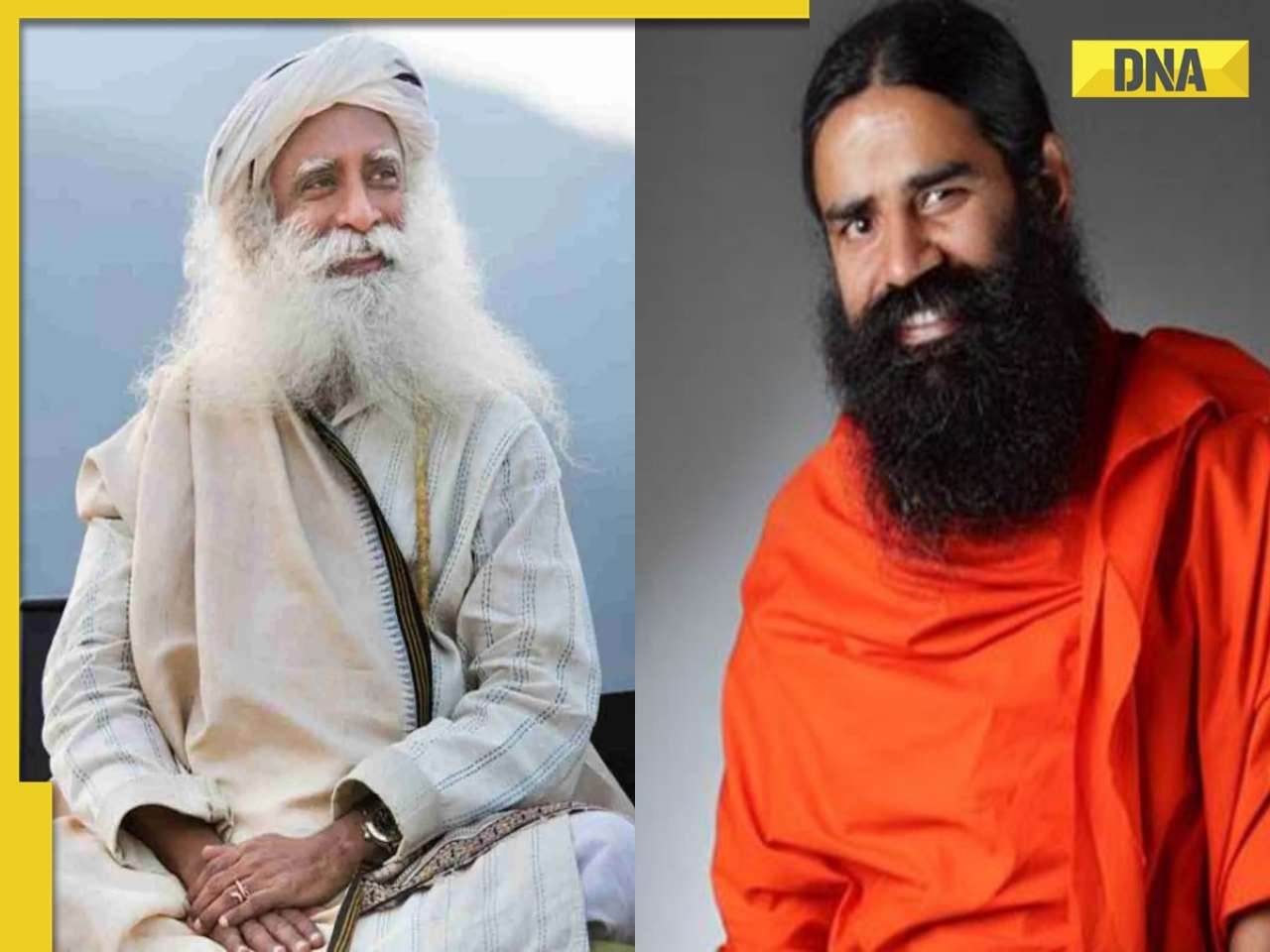

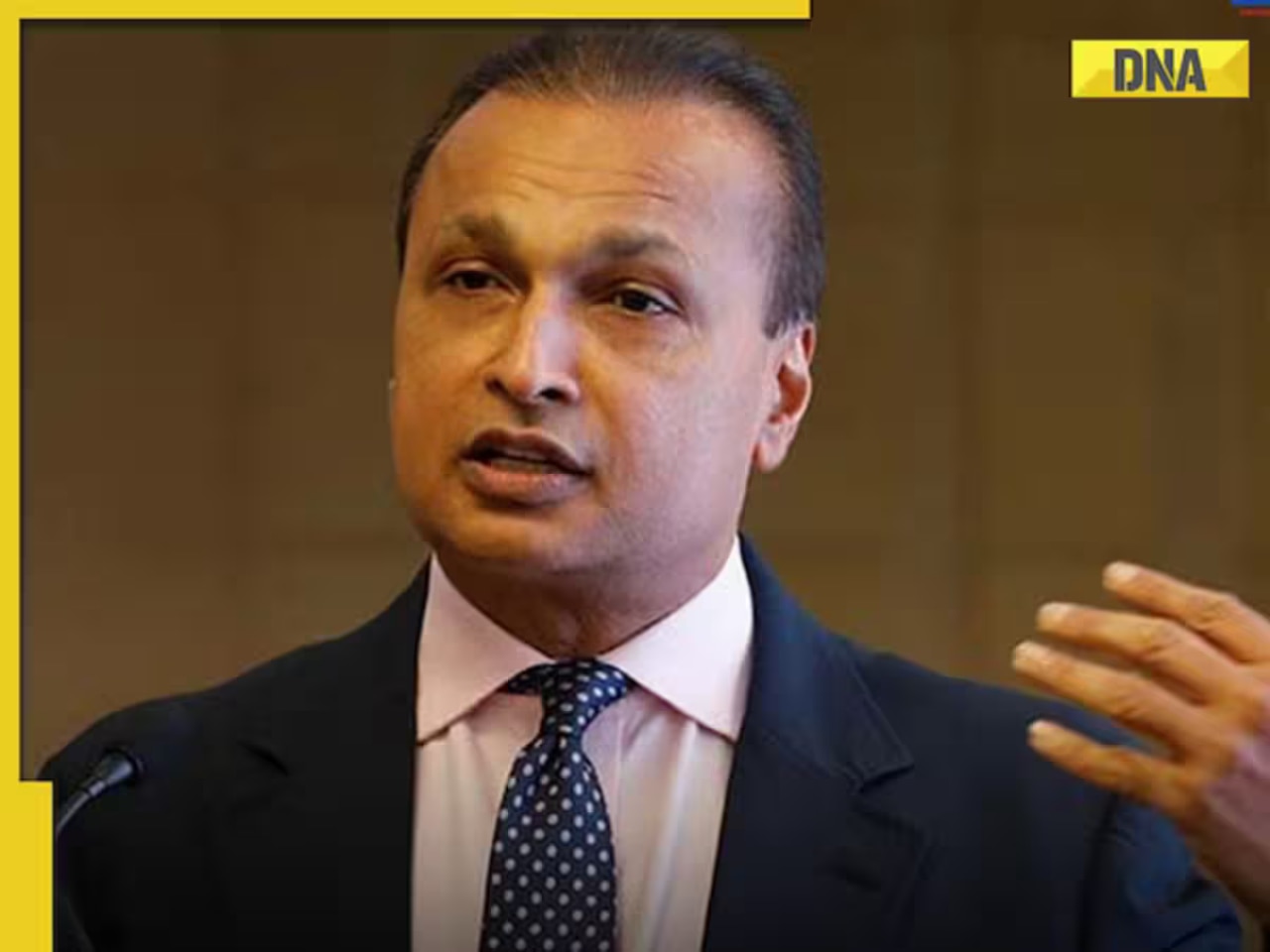

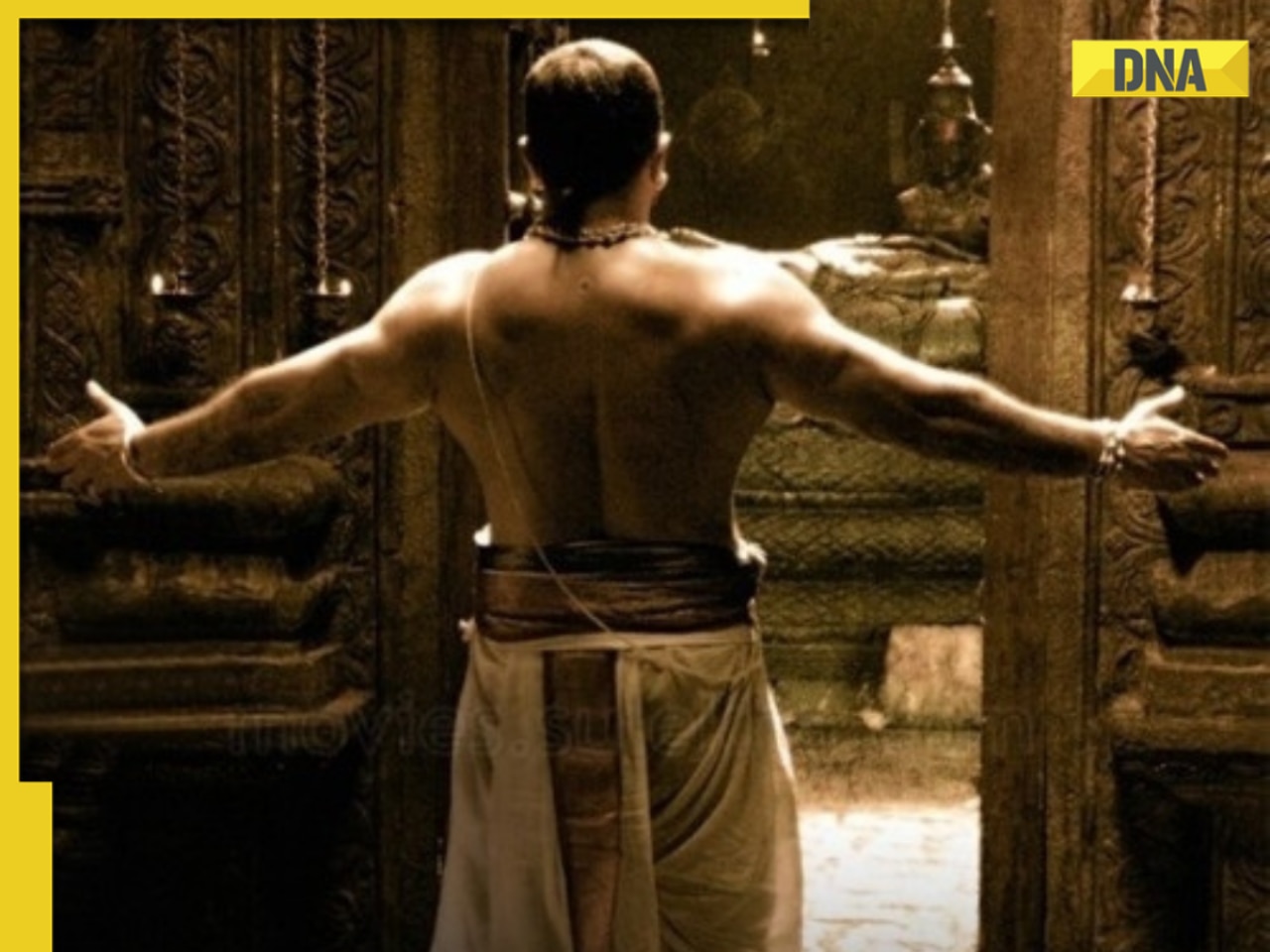
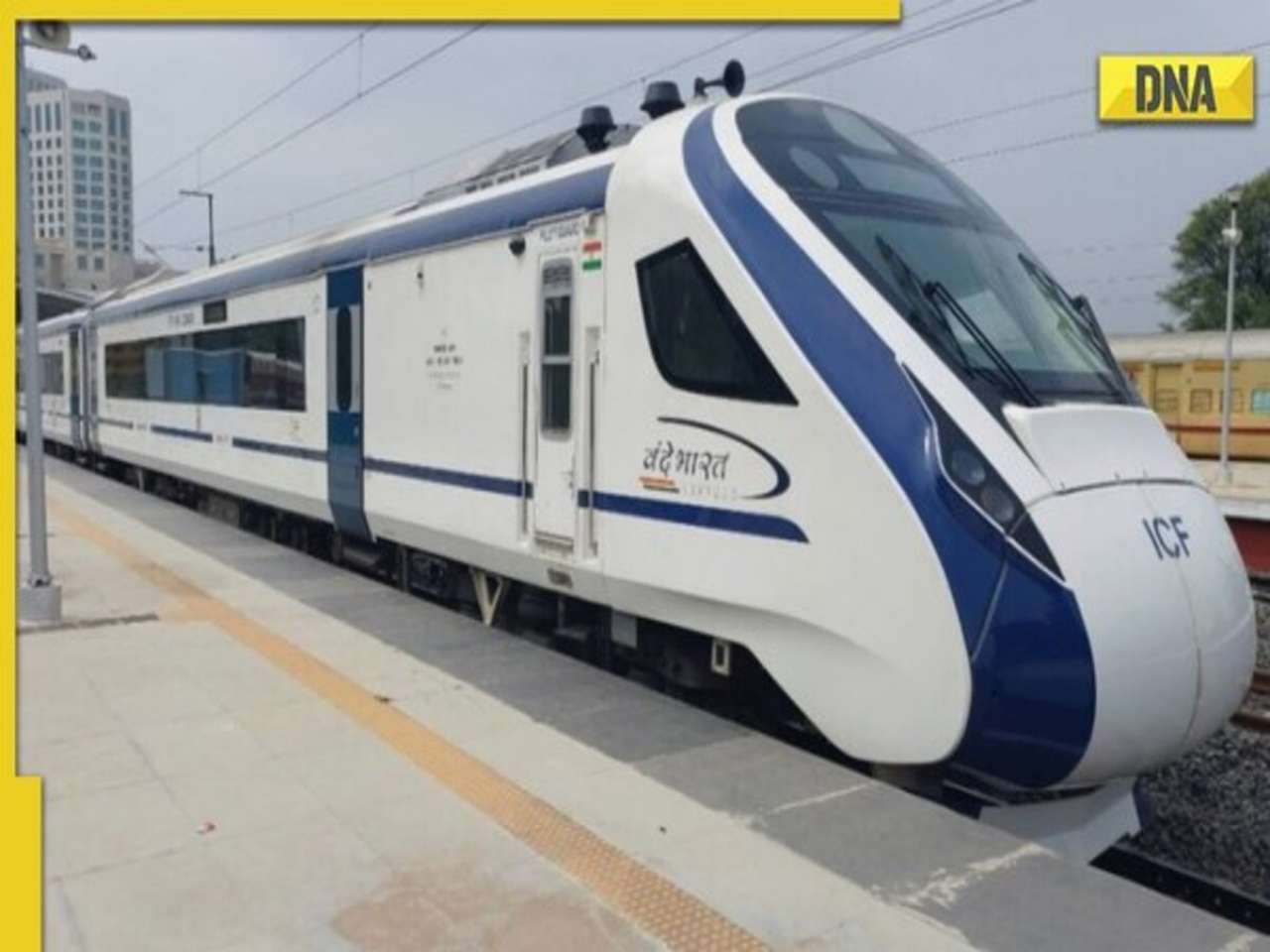


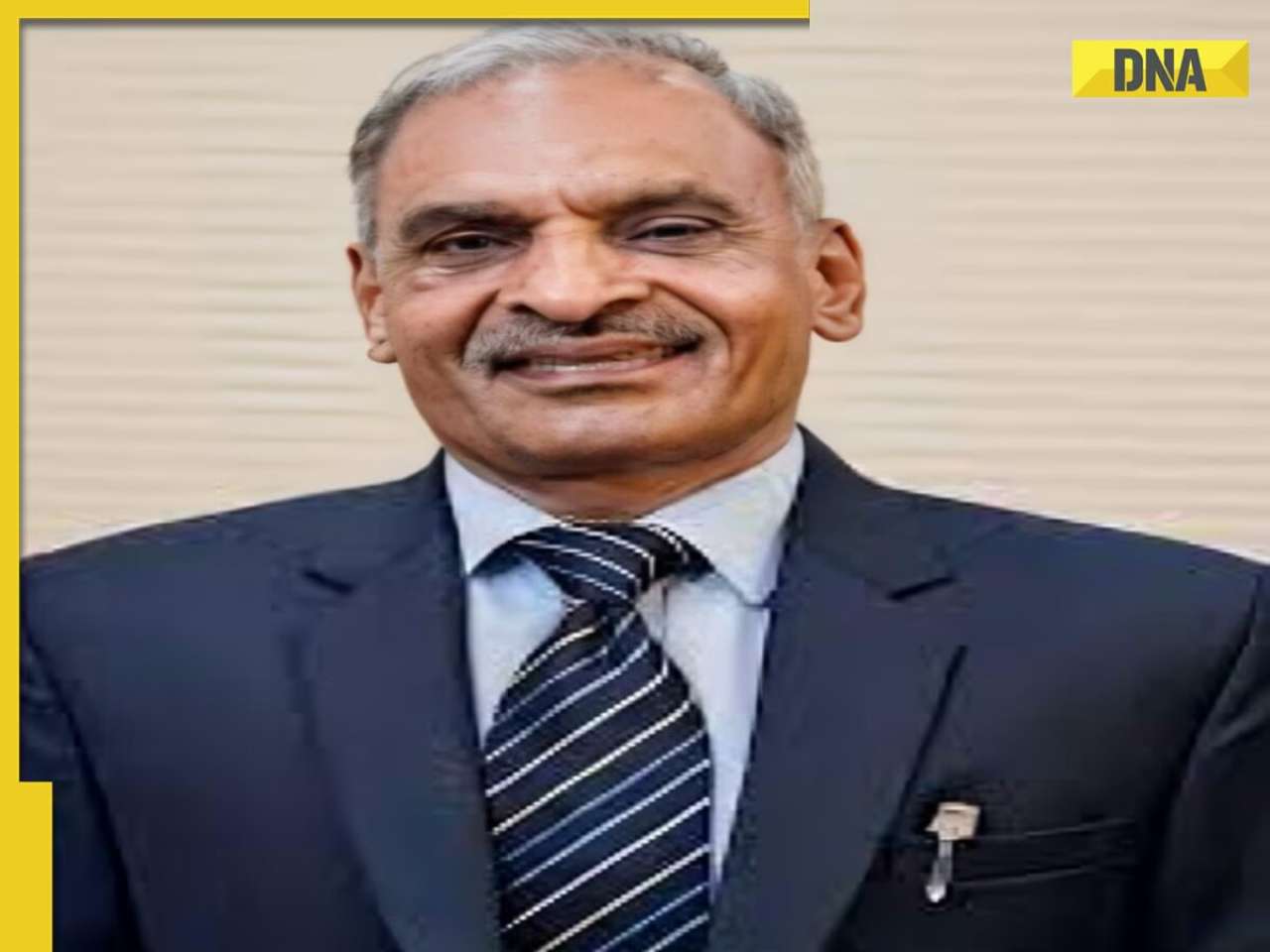






)
)
)
)
)
)